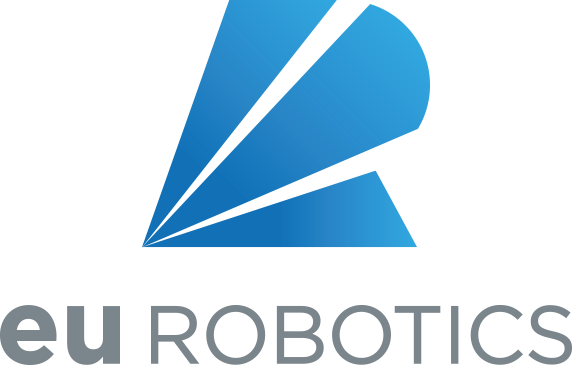ERF2010 Event overview
The ERF2010 was still called “EURON-EUROP Annual Meeting”. It took place 10–12 March 2010, in Donostia-San Sebastian, Spain, with Tecnalia as local host. It was the first time to have official “European Commission Forum”, with two items: European funding of robotics research: current activities and perspectives (Libor Kral / European Commission – Head of Unit Cognitive Systems, Interaction, Robotics), Factories of the Future PPP: Multi Annual Roadmap. (Rikardo Bueno, Tecnalia).
More than 230 roboticists from both, industry and academia, met for three days in Donostia, San Sebastian in Spain. The overall vision for the event was to close the gap between industry and academia: Industrial needs and academic offerings very often diverge. The focus was therefore on discussing the challenges faced by industry concerning the advancement of European Robotics and to explore academic solutions to tackle them.
The first day was organised by EUROP. In the five EUROP working groups (industrial, professional service, domestic service, space and security robotics) the European robot manufacuturers were asked to identify real technical problems the industry is currently facing and discussed what robotics can contribute to tackle societal challenges (ageing society, sustainable production, climate change, …). Starting point was the product vision and technologies described in the EUROP Strategic Research Agenda, which will now be concretised with position papers on the above mentioned topics (Hindering gaps for the robotics industry and societal challenges). The workshops on this day were a good starting point – the results and ideas collected will now help the EUROP working group leaders in preparing the EUROP position papers.
Highlight of the second day was the Technology Transfer Session in which the six finalists of the EUROP/ EURON Tech Transfer Award presented their work. It was encouraging for the community to see examples of research conducted by academia resulting in real products with commercial impact. “We need more of those”, commented Peter Eriksson (ABB, leader of the EUROP working group industrial robotics and member of the jury). The jury had a tough task of determining the winner given the high-quality applications for the award this year. After some discussion the jury decided on the following winners of the Tech Transfer Award 2010:
1) ALSTOM and ETHZ / EPFL for Highly Compact Mobile Robots for Process and Power Facility Inspections
2) University of Seville, Technische Universität Berlin and Flying Cam for AeRial Robotic Vehicles
3) Team of Trimo investigators, the team of FE investigators, and the team of IFT investigators for High-tech robotic handler for e-construction
The 6,000 € award is sponsored by ABB, COMAU, GÜDEL, KUKA Roboter, SCHUNK.
During the second day, organised jointly by EUROP and EURON, the workshops were more foused on challenges both (academia and industry) are facing. “Autonomous systems in security and aerospace”, “Encouraging Entrepreneurship: Sources of Finance and Early Stage Experience”, “Service Robotics: reasons that are delaying the expected “take-off” of the sector” were more targeted for the roboticists interested in the burgeoning robotics sectors (service, space and security). A workshop on “Robocup and Grand Challenges” elaborated ideas on how to focus (existing or new) grand challenges on topics of more (concrete) relevance for the robotics industry.
In parallel, discussion workshops on more general topics took place: Brainstorming sessions on “How to strengthen industry-academia collaboration (with focus on technology transfers) in robotics?”, “Feedback on the EUROP Strategic Research Agenda” and “How to raise public awareness of European robotics?” with a lively participation of the community were conducted.
In the afternoon, the community met for plenary sessions. The finalists of the EURON PhD award presented result of their research and the EURON community was asked to determine the winner.
Libor Král (European Commission, Head of Unit “Cognitive Systems, Interaction, Robotics”) gave an overview of the ICT work programme and upcoming funding opportunities. The EC is a major funding source for European robotics research spending about 400 million € alone in the period from 2007 until 2010. Libor Král made clear that the overall aim of the funding is to empower the European robotics industry with new technologies and solutions and increase its competitiveness.
Libor Král’s presentation was followed by Rikardo Bueno’s (Fatronik-Tecnalia) on the roadmap for the Factories of the Future programme, to which EUROP had contributed.
During the third day organised by EURON, the workshops were targeted more towards academia, nevertheless of interest for the EUROP community as well. In particular, the sessions on Ethical, Legal and Societal issues / non-technical constraints, and on State-of-the-art robotics products and R&D challenges were organised by EUROP members.
The both coordinators of EURON and EUROP were overwhelmed by the number of participants and positive feedback of the European robotics community. Both communities, industry and academia, have an interest to learn from each other and know that a closer cooperation is beneficial for both. Academia and industry depend on each other: Only a strong cooperation will ensure the European robot manufacturers a further leading role in the industrial robotics sector and will guarantee a good positioning in the burgeoning service, security and space robotics markets. On the other hand, only a strong industrial base of robotics in Europe will ensure that robotics research will remain on such a high level in Europe. Industry provides future jobs for students and researchers which allows for further funding on such a high level for robotics research.
Rainer Bischoff (KUKA Roboter and EUROP coordinator) satisfied with his decision of having a joint EURON / EUROP meeting is determined to carry on with this tradition in the future and is happy that for 2011 Robotdalen in Västeras will host the meeting.
